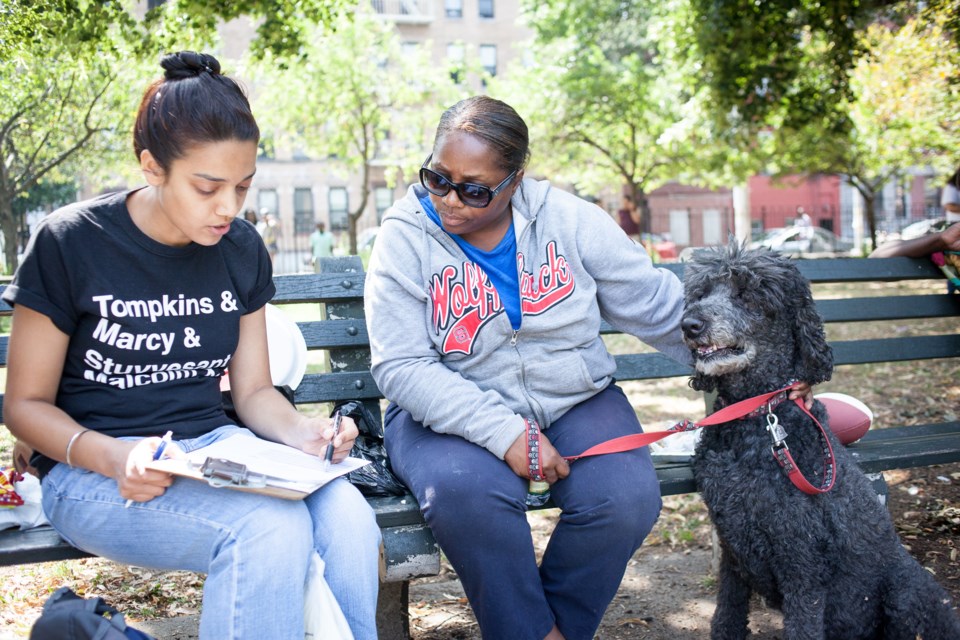In Bedford-Stuyvesant, where the ratio of bodegas to grocery stores has long been among the highest in the city, community leaders aren’t waiting for the city’s help to improve the food offerings in their own neighborhood.
“They’re not necessarily measuring whether the grocery stores have high-quality produce,” stated Rae Gomes, a Bed-Stuy food justice activist. “They’re not measuring whether it’s affordable to long-term residents, and they’re not looking to see if they’re paying people well.”
Gomes is on the board of the Central Brooklyn Food Cooperative, a Black-led grassroots project utilizing community strength to acquire space for a member-operated grocery store that could sell fresh food at affordable rates for residents in Bed-Stuy, Crown Heights and nearby neighborhoods, reports The City
Local residents say the city needs to start investing in community run food initiatives because the presence of a privately owned grocery store still does not ensure the community access to fresh and healthy food.
Mayor Eric Adams seems to agree: He has already spoken about food apartheid more than any mayor before him. But while food justice advocates laud these efforts, they say the administration needs to go further if it wants to transform the economics of food segregation.
The Central Brooklyn Food Coop would work as a non-profit, so to speak, whereby members are required to pay a $150 or $20 fee depending on their personal income, taking on volunteer shifts to staff the store.
Organizers have been trying to get the project off the ground for years, launching a campaign raising around $50,000 for a storefront slated to open the summer of 2019. But then the pandemic hit, pushing organizers to aid more pressing mutual-aid efforts. And now, securing a commercial space in rapidly gentrifying Central Brooklyn is harder than they previously imagined.
“I think that our best hope is to find a situation where we are getting financed," said Gomes. "Or we are getting supported by electeds or grants — a situation where we wouldn’t have to center profit at least for the first ten years.”
While many are still doubtful that Adams would follow through on his promise, some are still confident in his vision.
“He’s gonna reach out for those people because they’re important too, they’re in need also. You can’t give all to the rich,” said Elena Armstrong, an East Flatbush mother. “I heard Mayor Adams say something on that myself.”




